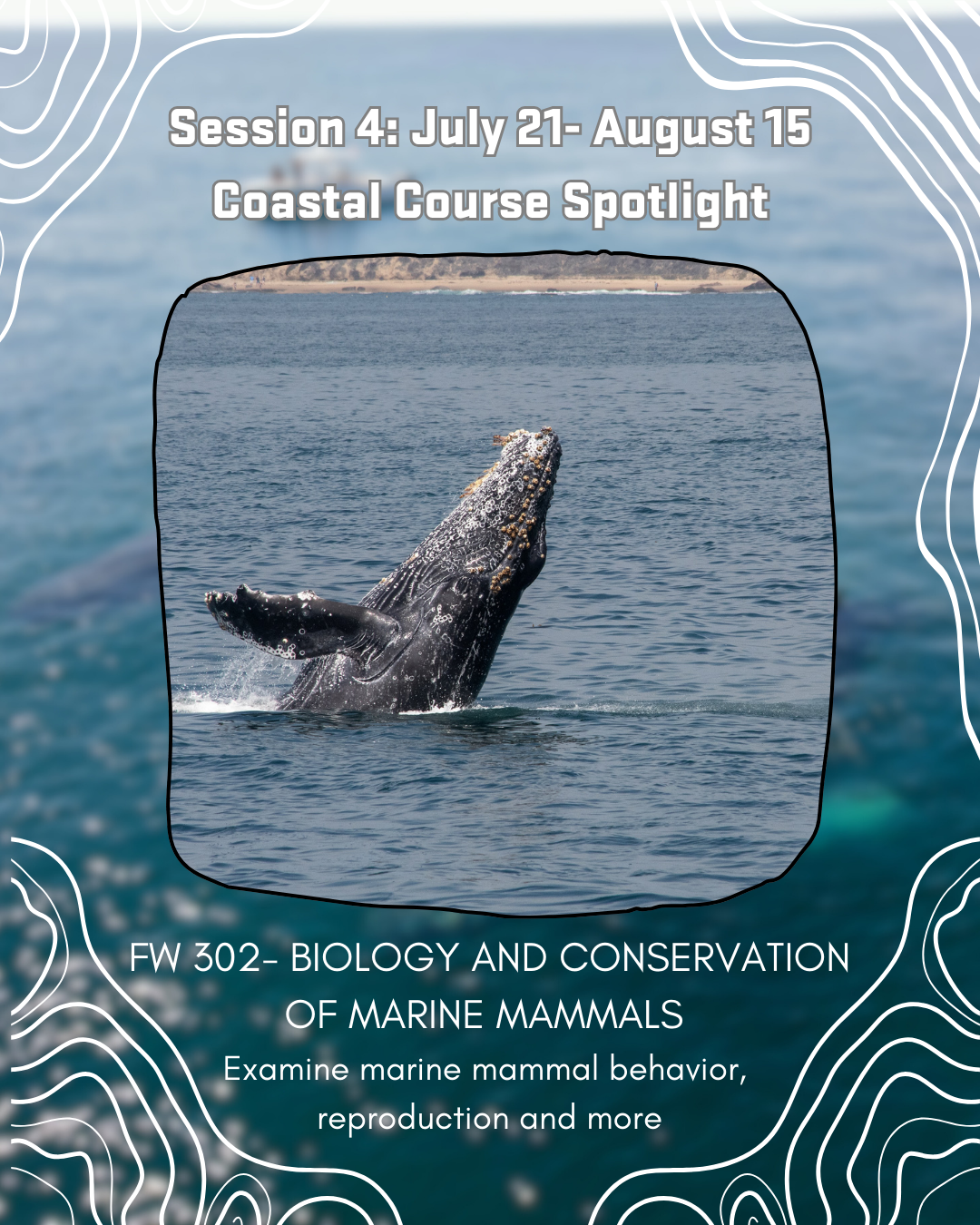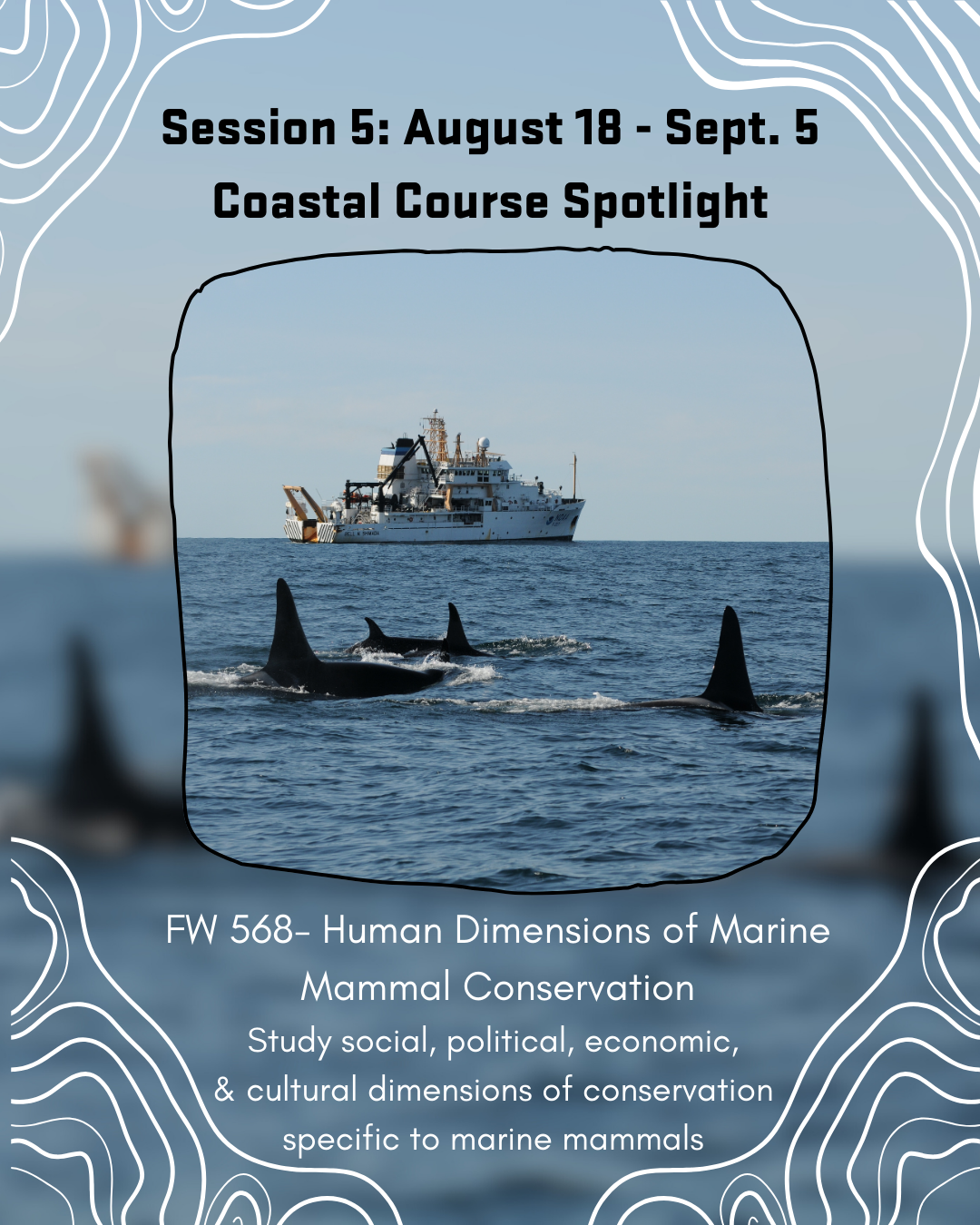biology, ecology, & conservation of marine mammals (FW 457x/557x)
Term: Fall Term 5A
Location: Newport (Hatfield Marine Science Center)
Instructor: Kate Stafford, Mauricio Cantor, Josh Stewart
Course Description: This 5-week, 9-credit course provides a comprehensive overview of the ecology, biology, and evolution of marine mammals, which are globally distributed, shape marine ecosystems, and are inextricably linked to humans. Examines adaptations of marine mammals to the marine environment, biogeography, bioacoustics, ecological roles, social, feeding and migratory behavior, and conservation issues. Emphasizes integrative learning through lectures, group discussions and debates, field activities, lab work, analyses of real-world data, and interaction with a wide variety of professions and fields related to marine mammal science.
Course Details


